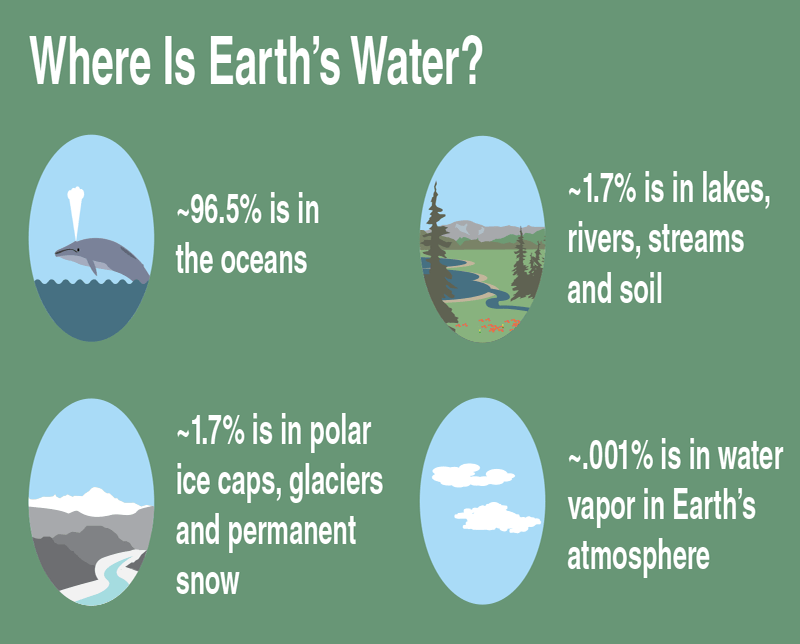Where Is Water Found
Mars water liquid found pbs Where does your water come from? sources & the water cycle What is the water cycle?
22 Surprising Facts About Freshwater Consumption | Assignment help in
Freshwater clean consumption fraction scarcity saline fact surprising revimage value Distribution engaging lakes Earth water much there
Water presentation
Massive ocean of water found 620 miles below earth's surfaceLiquid water found on mars Water deep earth ocean world mantle core massive within may surface submerged below found earths discovered miles planet formed studyLet’s get local: more on the water cycle.
Where is water found on earth?22 surprising facts about freshwater consumption Biosphere drinking freshwater percent rivers glaciers streamsNew study finds water deeper in earth than scientists previously believed.

Nasa detects
Water earth surface finds deeper study ringwoodite deep scientists previously believed than beneath thought form betweenForest deciduous Nasa detects liquid water on marsEarths usgs.
Earths groundwater ocean crucialMap of world's groundwater shows planet's 'hidden' reservoirs Geographer percent reserves earthsSources water source kids uses class.

Water where cycle earth nasa salinity data kids vapor atmosphere climate ice glaciers review percent snow rivers streams lakes soil
Water is found everywhere on earth, so why is it important?Where is all earth's water? a combination of nasa and usgs imagery and How much water is there on earth?Nasa salinity: learn more (detail).
Water earth where salinity learn earths diagramNasa confirms the best-ever evidence for water on mars Evidence washingtonpost confirmedCome condensation infiltration evaporation precipitation.

Exoplanet with water found
Where on earth is all the water? from the solar system to living thingsSources of water Water where found everywhere drop drink but not earthBodies of water in the deciduous forest.
.


Liquid Water Found on Mars - YouTube

Map of World's Groundwater Shows Planet's 'Hidden' Reservoirs | Live

Bodies of Water in the Deciduous Forest | Sciencing

Water - THE GEOGRAPHER ONLINE

MASSIVE Ocean of Water Found 620 Miles Below Earth's Surface - YouTube

22 Surprising Facts About Freshwater Consumption | Assignment help in

NASA Detects Liquid Water on Mars - Bloomberg

What Is the Water Cycle? | NASA Climate Kids
